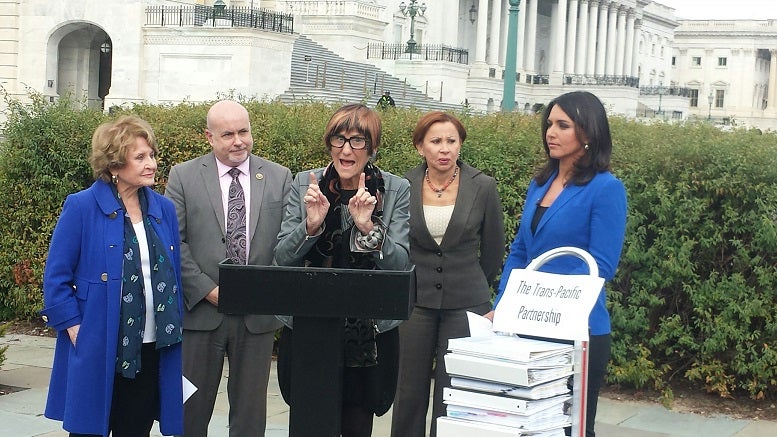Uncategorized
DeLauro Says Corporations Shouldn’t Dominate TPP Process

One of the House’s most outspoken critics in the fight to defeat the Trans-Pacific Partnership (TPP) went on the offensive this week against the deal, saying the public is becoming increasingly aware how the Pacific Rim trade pact is detrimental to the livelihoods of everyday Americans.
Rep. Rosa DeLauro (D-Conn.), speaking at a Yale Law School forum yesterday, told those in attendance that hard-working Americans will be getting the shaft if TPP is enacted. That’s because the 12-nation agreement goes way beyond just trade, setting standards across borders that put the interests of multinational corporations above all others.
As a result, she said, “a narrow set of corporate interests have primacy over democratic values.” Worker wages have become an afterthought, even as U.S. families struggle to cover their costs and send their kids to college while big business rakes in huge profits.
“We need to learn from these shortcomings as we seek to right the rules for international trade in the 21st century,” DeLauro stated. “What this is about is designing a new economy for the future.”
To do so, however, will require a significant shift in thinking. She said trade policies are needed that “harness the energy of innovation and industry.” That means including unions and other civil society groups in the discussion of how to craft this nation’s economic future, not just giving them “a seat at the kids’ table” like was done during TPP negotiations.
The Teamsters join with DeLauro in calling out the tilted playing field that places the wants and desires of corporations above all others. Including Investor State Dispute Settlement language in the TPP is just one more sign of big business’ dominance in such deals. Why can foreign companies attempt to usurp the laws of countries like the U.S. in international tribunals, with taxpayers left to pick up the tab? How does that support democracy?
Improving the nation’s economy means including actual regular working people in the plan. Any trade deal needs to work for all, not just the few.